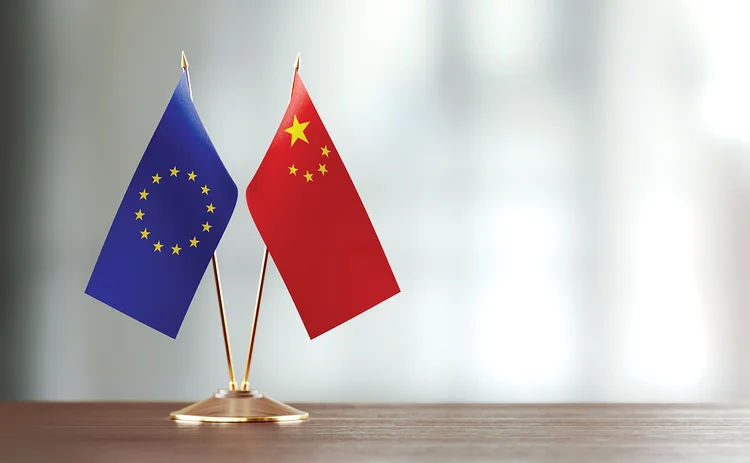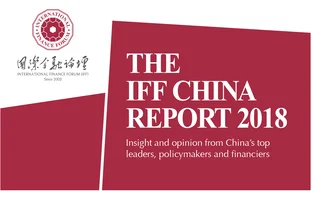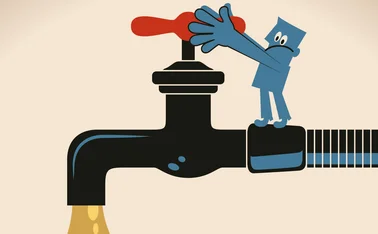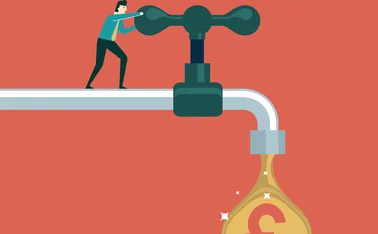
Deepening China–EU trade relations
By creating an environment of trust and stability in the European Union, Chinese investment there can be boosted and the trade imbalance evened out, says Edmond Alphandéry, former finance minister of France and chairman of the Euro 50 Group


China–European Union trade figures seem encouraging, but they are sending out mixed signals. In terms of trade in goods and services, the EU is China’s premier commercial partner. It is the number one seller of goods and services to China and is second after the US in terms of imports from China. Trade flows have been increasing significantly over the past decades on both sides. Chinese imports from the EU have increased by 70%, but EU exports to China are much lower. This deficit remains significant – it represents about half the value of trade. Between 2014 and 2016, EU imports increased from €300 billion to €350 billion, while exports to China remained stagnant at around €170 billion. Of course, we would like to see a perfect China–EU trade balance, but it is also important to maintain harmonious relationships by paying attention to these figures.
Financial ebb and flow between China and the EU
The stock of EU foreign direct investment (FDI) in China in 2015 totalled €168 billion, while Chinese FDI in the EU was only €35 billion, according to the European Commission. This large imbalance should not disguise the dynamism of Chinese investment in the EU – in fact, this investment in the EU is now comparable to EU investment in China. Figures produced by the Rogers Group for the European Commission released some interesting information for the first six months of 2017. EU companies’ FDI transactions in China – the main sectors being the car industry, aeronautics and basic materials, and the main countries being Germany, France and the UK – dropped by 33% compared with the previous year. The EU–China FDI monitor shows that the combined value of Chinese FDI transaction in the EU – which totalled less than €4 billion in the second quarter of 2017 – is at its lowest level since the first quarter of 2015. The outlook for Chinese investment in Europe is therefore mixed, with room for progress on both sides.

Financial exchanges between China and Europe have huge economic, social and political implications, so the spirit with which both parties envision their relationships is essential. The EU–China 2020 Strategic Agenda for Co-operation, adopted in 2013, recognises the “potential for synergies to enhance co-operation for win-win results”. It stresses that, in a world still far from being at peace, “promoting mutual multilateralism remains crucial to ensure effective, co-ordinated and coherent responses to pressing global challenges”. According to this agenda, the two parties are committed to taking steps in favour of market access, investment, intellectual property protection and financial co-operation, with those strategic partnerships based on “the principles of equality, respect and trust”. Going further into the economic and financial dimensions, the agenda encompasses co-operation on defence and security, protection of cyberspace, mutual co-ordination, addressing governance issues, sustainable development and implementation of effective international climate change measures, and cultural collaboration. The EU–China 2020 Strategic Agenda for Co-operation is, in the author’s view, the framework best suited for a bilateral long-term win-win relationship in trade and investment.
Enhancing the environment for China–EU exchanges
In China, very positive macroeconomic implications have arisen. First, the rebalancing of the Chinese economy in favour of domestic spending is very good news – it not only puts the development of the Chinese economy on a firm footing, but enhances the size of the market for commercial partners of China, with the EU in prime position.
Second, the policy of opening capital accounts in China – which prioritises a framework of financial stability – must also be welcomed. Some voices within and outside of China would prefer the accelerated innovation of financial service activities. The rest of us should remain aware of the stabilisation efforts China faces – given the huge amount of access liquidity, the insufficient co-ordination of monetary policies around the world and the need for more stringent regulatory framework in monetary markets and financial activities – and appreciate the position of the Chinese authorities in taking their time to fully open its capital accounts. The EU, and the world at large, benefit hugely from the policy of monetary and financial stability in China.
Third, concerning EU investors’ access to China, it is worth observing that steps were taken in June 2017 to facilitate foreign investment in the bilateral free-trade zones. The 2017 so-called ‘negative list’ removes restrictions for foreign investment in various sectors, including manufacturing, aviation, shipping, automotive, railroad, transportation, equipment, telecoms and pharmaceuticals. Banks and insurance companies no longer face a number of requirements to invest in Chinese financial institutions. This is good news for China as well, since the success of bilateral free-trade zones is appealing to foreign investment: the success of Shenzhen, for example, lies in its attractiveness to both domestic and foreign investors. We can only encourage Chinese authorities to pursue this policy and continue to promote certain activities and values to improve the political and business climate for Chinese firms to invest in Europe. Many Chinese investments in Europe have been a success – the Port of Piraeus, Toulouse Airport and many others have been beneficial to both parties.
But it is no surprise that, in the context of trade imbalance, some European businesses realise they should expand sales in China in spheres such as more sophisticated industrial products. European businesses would also like to invest more in China’s domestic market, which is rapidly becoming the largest retail market in the world. To create an environment of trust and confidence in the future of the EU, it is in China’s interests in the first place that it succeeds in deepening the integration of the EU member states.
In this respect, two issues remain. First, to strengthen the eurozone – which has now successfully emerged from the euro crisis, and is doing well in economic growth – we have to complete the banking union, better integrate our capital markets and create a governance where solidarity among all member states prevails. With the election of Emmanuel Macron as president of France, there is now momentum in Europe for reform in a direction that will improve the confidence of Chinese investors in the eurozone.
Second, for Europe to deal with Brexit. It is in nobody’s interests – least of all Chinese investors – for the UK to leave the EU amid a climate of disorder and bitterness. The discussion between the EU and the UK is complicated, but at the end of the day, the interest of both parties is to find a satisfactory agreement.
To demonstrate its commitment to China, the EU must go further in welcoming Chinese investors. The ‘16+1’ co-operation platform was established in 2012 between China and eastern European countries to foster investment and trade as well as cultural collaboration. Eleven EU countries are involved in China’s Belt and Road Initiative, and China has founded infrastructure projects that are useful in fostering the EU’s economic development. We need to keep up with these initiatives. The European Investment Bank and the Silk Road Fund signed the memorandum of understanding for strategic co-operation to support the equity of finance across Europe, and it bodes well that the European Investment Bank is also bringing financial support for climate investment across eight Chinese provinces.
Have faith in the development of exchanges between Europe and China. Clearly, both parties understand what is at stake and are moving in the right direction. This is good news, as this is a pillar upon which we will build security and prosperity, not only for the EU and China but for the world at large.
Only users who have a paid subscription or are part of a corporate subscription are able to print or copy content.
To access these options, along with all other subscription benefits, please contact info@centralbanking.com or view our subscription options here: subscriptions.centralbanking.com/subscribe
You are currently unable to print this content. Please contact info@centralbanking.com to find out more.
You are currently unable to copy this content. Please contact info@centralbanking.com to find out more.
Copyright Infopro Digital Limited. All rights reserved.
As outlined in our terms and conditions, https://www.infopro-digital.com/terms-and-conditions/subscriptions/ (point 2.4), printing is limited to a single copy.
If you would like to purchase additional rights please email info@centralbanking.com test test test
Copyright Infopro Digital Limited. All rights reserved.
You may share this content using our article tools. As outlined in our terms and conditions, https://www.infopro-digital.com/terms-and-conditions/subscriptions/ (clause 2.4), an Authorised User may only make one copy of the materials for their own personal use. You must also comply with the restrictions in clause 2.5.
If you would like to purchase additional rights please email info@centralbanking.com test test test







